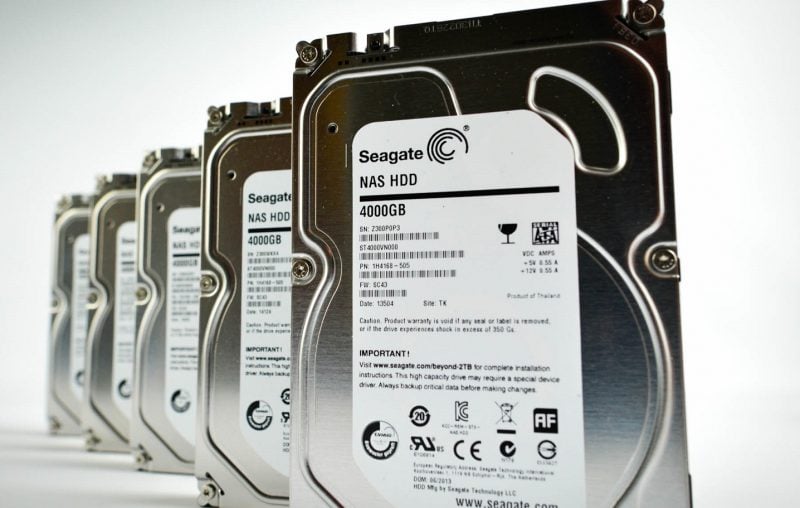An HDD, or Hard Disk Drive, is a computer component responsible for storing data. The HDD is a non-volatile storage device, meaning data does not get lost when it’s powered down.
Invented way back in 1953, the HDD uses a magnetic head to read and write from disks typically spinning somewhere between 5,400 RPMs to 7,200 RPMs. The inside of a mechanical drive consists of one or more rotating plates, called platters. This is where the data gets written, stored, or deleted. A moving arm, called the actuator arm, writes or deletes data on the platters. HDDs typically come in a 2.5-inch form factor for mobile devices such as laptops or a 3.5-inch form factor for desktop computers.
Currently the largest manufacturers of HDDs include Western Digital/HGST, Seagate/Samsung, and Toshiba.
HDD Pros:
- Abundant
- Relatively inexpensive
- Large capacity
HDD Cons:
- Slow compared to SSDs
- Loud
- Generates heat
- Moving parts mean HDDs are physically susceptible to damage (sudden impact, vibration, etc)

